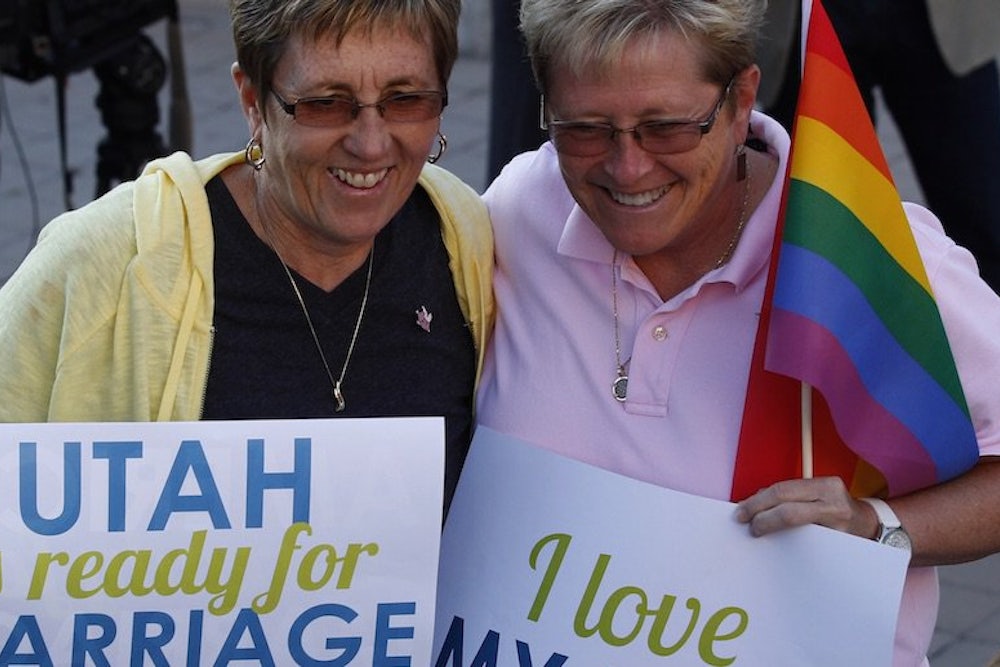On Wednesday night, Utah’s House and Senate passed what has been hailed as the “Utah compromise”—a bill with the rare distinction of being a victory for both the state's religious conservatives and LGBTQ community. The bill extends housing and employment protections to members of Utah’s LGBTQ community and also strengthens religious liberties, including the rights of religious institutions to hire on the basis of religion and of workers to voice their religious views. The bill was sponsored by two Republican state senators, Stephen Urquhart and J. Stuart Adams, and the Mormon Church supported the legislation. It is being called a model for how conservative religious groups can adjust to life in deeply conservative states where same-sex marriage is suddenly legal.
“The big message is that even on the heels of the bitter loss over marriage, people could find a way to call a truce in the culture war,” says Robin Wilson, a law professor at the University of Illinois College of Law professor who helped craft the legislation. The bill passed 23-5 in the Senate and 65-10 in the House, but many of those who worked on the bill are already anxious about what is sure to follow: a fight over public accommodations, or questions like whether a baker with religious objections would be obligated to bake a cake for a same-sex wedding.
The Mormon Church has been involved in the struggle for housing and employment protections for members of Utah's LGBTQ community since 2008. After the Church was criticized for its support of Proposition 8 in California, Mormon leaders wanted to “push back on assertions that its position was motivated by ‘hate’ for LGBT people,” according to a press release from the church. Clifford Rosky, a law professor at the University of Utah, says that at that point, Equality Utah, with whom he was working at the time, realized that the church’s statement “really opened up an opportunity. ... If they stood behind employment and housing and healthcare protections, and if Equality Utah stood behind them, this would be a unique opportunity for a common ground campaign.”
Ultimately, some involved in the legislation are calling the “Utah compromise” a misnomer, because it implies there were more concessions in the process than there actually were. Mormon Church Spokesman Eric Hawkins wrote in an email that “[Senate Bill 296] reflects the very best of collaboration and statesmanship from groups and individuals who may not always agree on all things, but who have passed landmark legislation that balances religious freedom and antidiscrimination.”
Non-Mormon religious conservatives weren't as supportive. Dr. Russell Moore, the president of the Ethics and Religious Liberty Commission of the Southern Baptist Convention, believes “that this compromise is well intentioned but naïve.” He told The New York Times that the Southern Baptist Convention and the Roman Catholic Bishops “parted company with Mormon leaders over the Utah legislation.”
For many religious Utahans, a public accommodations compromise that obligates individuals to service ceremonies they object to on religious grounds would not go down so easily. On Wednesday night, Utah’s state senate broached the subject with another bill allowing county clerks to opt out of performing weddings they are not comfortable performing, so long as the couple in question still has equal access to a clerk who will marry them. The public accommodations fight in Utah could be coming down the pipeline sooner than anyone realizes, and many fear that “compromise” will not be so cozy.
Correction: A previous version of this story incorrectly identified Robin Wilson as Alice Wilson.
